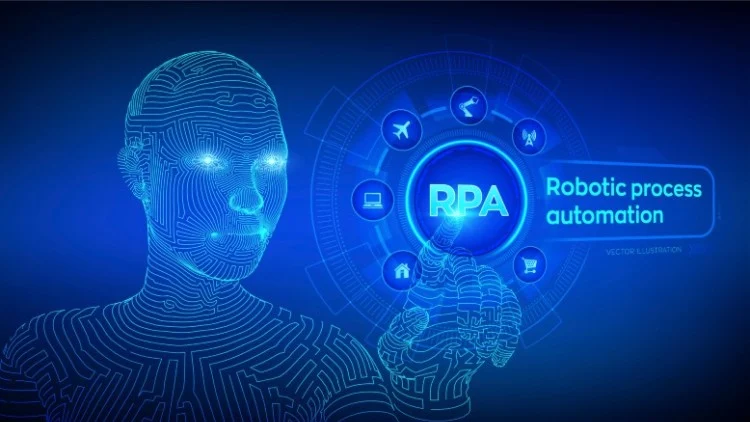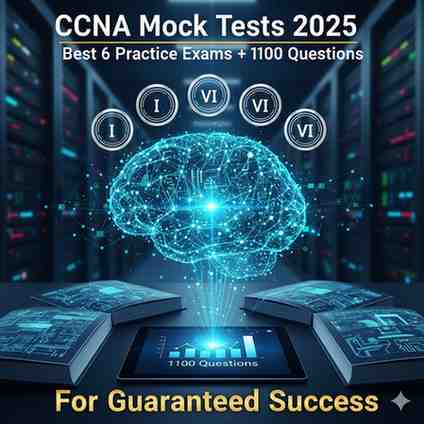Becoming a Certified RPA Professional is a significant milestone for anyone aiming to demonstrate their proficiency in automation tools, process design, and digital transformation strategies. However, acing the certification exam or succeeding in job interviews requires more than just textbook knowledge—it calls for real-world experience and rigorous practice with industry-relevant Robotic Process Automation interview questions.
One of the most effective ways to prepare is by using the Best Robotic Process Automation Interview Practice Tests For 2025: Top RPA Exam Simulators To Pass Your Interview, which replicate the real exam or interview setting and help candidates pinpoint areas needing improvement. With countless options available online, choosing the right preparation tool can be overwhelming. The best simulators offer realistic RPA exam questions and coverage across major platforms like UiPath, Automation Anywhere, and Blue Prism.
This blog provides a well-researched comparison of the most reliable RPA certification and interview practice tests, assessed based on:
✅ Question Quality & Difficulty
✅ Exam Format & Realism
✅ Pricing & Access Duration
✅ Alignment with RPA Industry Standards
Let’s dive into the top RPA practice exams and interview simulators to help you earn your certification and confidently step into your next automation role.
Introduction to Robotic Process Automation Certification
The Robotic Process Automation (RPA) Interview Preparation is designed for professionals aiming to excel in RPA-related roles. It validates expertise in core RPA concepts, best practices for automation, and an understanding of leading RPA tools like UiPath, Automation Anywhere, and Blue Prism. Candidates preparing for RPA interviews should have a good grasp of automation workflows, bot development, process design, and basic scripting knowledge.
A well-structured RPA interview preparation strategy should include practical hands-on experience with RPA platforms, a strong understanding of automation frameworks, and, most importantly, access to high-quality RPA practice tests that simulate real interview scenarios. Using the Best Robotic Process Automation Interview Questions Practice Tests can significantly improve readiness by exposing candidates to real-world RPA interview questions and role-specific scenarios.
Importance of Robotic Process Automation Certification
Industry Recognition and Career Growth:
The Robotic Process Automation Certification is highly regarded across industries embracing digital transformation. It validates a professional’s ability to design, develop, and manage automation workflows, making certified individuals more appealing to organizations implementing RPA solutions.Mastery of RPA Tools and Best Practices:
This certification ensures that candidates gain in-depth expertise in leading RPA platforms such as UiPath, Automation Anywhere, and Blue Prism, along with industry best practices for automating business processes efficiently and securely.Higher Salary and Better Job Opportunities:
Professionals with an RPA certification often command higher salaries and are more likely to secure roles in automation, business process management, and digital operations. As businesses continue to adopt automation at scale, the demand for certified RPA talent grows steadily.Real-World Problem-Solving Skills:
Preparing for RPA certification involves tackling real-world automation scenarios, enhancing a candidate’s ability to analyze, optimize, and automate complex business tasks. Using the Best Robotic Process Automation Interview Practice Tests For 2025: Top RPA Exam Simulators To Pass Your Interview helps sharpen practical skills essential for successful automation implementation.Validation of Hands-On Experience:
RPA certifications are built to test practical, hands-on knowledge of automation workflows, exception handling, and bot deployment. Practicing with Top RPA Exam Simulators helps validate this experience and prepares candidates for real-world challenges.Competitive Advantage in the Job Market:
Certified RPA professionals stand out in today’s tech-driven job market. Whether applying for roles in IT, business analysis, or operations, holding an RPA certification signals readiness to contribute to intelligent automation initiatives and drive organizational efficiency.
Eligibility Criteria for Robotic Process Automation (RPA) Interview Preparation :
1.Prerequisite Knowledge:
To be eligible for excelling in Robotic Process Automation (RPA) interviews, candidates should have some prior experience with automation technologies. While there are no formal prerequisites for starting RPA interview preparation, it is recommended to have the following:
- 1+ years of hands-on experience working with RPA tools and technologies like UiPath, Automation Anywhere, or Blue Prism.
- Practical experience in developing, deploying, and managing RPA bots in real-world business scenarios.
- Knowledge of core RPA concepts such as process automation, bot orchestration, and workflow design.
2.Understanding of Key Concepts:
Candidates should have a good grasp of core RPA technologies, tools, and architecture. The following skills and knowledge areas are highly recommended for optimal interview success:
- Familiarity with RPA platforms and how automation solutions fit within broader business processes.
- Understanding of bot development life cycles, exception handling, and process optimization techniques.
- Proficiency in scripting or programming languages like Python, VBScript, or JavaScript, which are often integrated into RPA solutions.
3.Exam Preparation:
Although no formal prerequisites exist, succeeding in RPA interviews requires a solid understanding of automation tools, frameworks, and best practices. To better prepare, consider using Best Robotic Process Automation – RPA Interview Questions Practice Tests available online. These resources will help you:
Build robotic applications using Robatic SDKs and integrate them with various robotic systems and platforms.
Utilize robotics-native tools for debugging, monitoring, and deploying robotic applications efficiently.
4.Real-World Experience:
It is strongly encouraged that candidates have practical, real-world experience with developing and managing RPA solutions. You should be able to confidently:
- Build and deploy bots using popular RPA platforms and integrate them with enterprise applications.
- Utilize RPA analytics and monitoring tools for maintaining and scaling automation initiatives.
- Work with orchestrators, queues, and control rooms to manage RPA workflows efficiently.
5.Exam Details:
While there is no official “exam” for interviews, mastering Robotic Process Automation interview questions is crucial for standing out. Candidates should focus on practical RPA experience, theoretical knowledge, and familiarity with frequently asked questions as outlined above. Practicing with Top Robotic Process Automation – RPA Interview Questions Practice Tests can greatly boost confidence and readiness for any RPA interview
Exam Structure for Robotic Process Automation Interview Practice Tests
When preparing for success in Robotic Process Automation (RPA) interviews, understanding the structure of commonly asked questions is essential to ensure you’re well-equipped to excel. These interviews test your ability to design, develop, and manage RPA solutions effectively. Here’s a breakdown of the interview question structure, including the key topics you’ll need to focus on and the best ways to prepare using the Best Robotic Process Automation – RPA Interview Questions Practice Tests and Top RPA Interview Preparation Simulators
Exam Structure
Exam Format:
- Typically includes a combination of multiple-choice and scenario-based questions.
- These questions assess your ability to design, develop, and manage RPA solutions using automation tools.
- Some questions may require selecting more than one correct answer, challenging your understanding of RPA principles and tools.
- The RPA Interview exam is designed to evaluate your skills in automating business processes, including the use of RPA tools, workflow automation, and integrating RPA with existing systems.
Number of Questions & Duration:
- The exam consists of approximately 65 questions (subject to change based on updates in RPA technology).
- You are given 130 minutes to complete the exam, testing your ability to apply your knowledge under time constraints.
- Robotic Process Automation interview simulators can help you familiarize yourself with the format and practice under timed conditions.
Passing Score:
- The passing score is set around 720 out of 1000, though it may vary slightly depending on interview feedback.
- Achieving a high score requires familiarity with key RPA tools, process design, and best practices.
- To boost your chances, consider leveraging Robotic Process Automation – RPA Interview Questions Practice Tests, real-world experience, and study guides tailored for this interview process
Question Types
Multiple-Choice (Single Answer) :
- The most common question format in the RPA interview. You will select the best answer from several options.
- Topics may cover a range of RPA tools and concepts such as process automation, bot design, workflow automation, and more.
Multiple-Choice (Multiple Answers):
- Some questions require more than one correct response to fully address a scenario or topic.
- These often test your deeper knowledge of RPA tools, such as UiPath, Automation Anywhere, and Blue Prism, especially for more complex automation workflows and deployments.
Scenario-Based Questions:
- These questions present real-world use cases, such as designing a fully automated process or troubleshooting issues in bot execution.
- Scenario-based questions aim to gauge how well you can apply theoretical knowledge to practical RPA deployments, using automation tools and integrating them with existing systems.
Knowledge-Based Questions:
- These questions test your understanding of official RPA documentation, best practices, and industry standards.
- Expect to answer questions on concepts like process mapping, error handling, and bot optimization.
Practical Application:
- These questions may not require hands-on labs but will assess your ability to interpret automation scripts, configuration files, or environment settings.
- For example, you may need to identify issues in RPA workflows, evaluate bot performance, or troubleshoot automation errors in tools like UiPath or Automation Anywhere.
Domains Covered for Robotic Process Automation Interview Practice Tests
The Robotic Process Automation (RPA) interview assesses your proficiency in automating business processes, optimizing workflows, and understanding RPA tools and frameworks. Understanding the core domains helps you target your study efforts effectively. Below is a representative overview of the key focus areas and their approximate exam weight:
| Domain | Percentage of Items |
|---|---|
| Automation Frameworks | 30% |
| RPA Tools and Technologies | 22% |
| Security and Governance | 20% |
| Process Design and Optimization | 18% |
| Monitoring and Maintenance | 10% |
Additional Information
Exam Format:
- Typically includes a combination of multiple-choice, drag-and-drop, and scenario-based questions.
- These questions assess your ability to design, implement, and manage RPA solutions using popular robotic process automation tools.
- Some questions may require choosing multiple correct answers, testing your depth of knowledge in automation workflows, bots, and governance.
- The Robotic Process Automation Certification exam is structured to evaluate your skills in process automation, tool proficiency, and security compliance within RPA frameworks.
Number of Questions & Duration:
- The exam generally includes 60–75 questions, depending on the certification provider’s current format.
- You are typically given 90 to 120 minutes to complete the exam, which tests your ability to apply automation concepts under time constraints.
- Best Robotic Process Automation Interview Practice Tests For 2025: Top RPA Exam Simulators To Pass Your Interview can help simulate the exam environment and improve time management.
Passing Score:
- The passing score is usually set around 70%, though it can vary by platform and certification body.
- Achieving a strong score requires familiarity with RPA tools, process optimization, and automation lifecycle management.
To improve success rates, candidates are advised to use Top RPA Exam Simulators, hands-on training, and updated RPA practice tests aligned with the latest exam objectives.
The Robotic Process Automation Interview Preparation is a valuable certification path for professionals looking to validate their RPA expertise, advance their careers in automation, and stand out in the growing automation field.
Importance of Best Robotic Process Automation Interview Practice Tests
Preparing for Robotic Process Automation (RPA) interviews requires more than just theoretical knowledge of RPA tools and concepts. Utilizing the Top Robotic Process Automation – RPA Interview Questions Practice Tests plays a crucial role in effective preparation. These practice tests help candidates understand real-world scenarios, sharpen their problem-solving skills, and enhance their readiness for interviews, ensuring they possess the necessary knowledge, skills, and confidence to succeed in RPA-related job opportunities.
How Do Top Robotic Process Automation Interview Practice Tests Help?
Knowledge Assessment:
Robotic Process Automation (RPA) certification practice tests help identify gaps in your understanding of automation concepts, frameworks, and tools. These tests highlight areas needing improvement and guide your focus toward mastering key RPA components essential for passing the certification exam. By evaluating your current knowledge, you can structure your preparation more efficiently and effectively.Exam Familiarity:
Engaging with the Best Robotic Process Automation Interview Practice Tests For 2025: Top RPA Exam Simulators To Pass Your Interview replicates the structure, format, and timing of the actual exam. This hands-on exposure reduces test anxiety, improves time management, and prepares you for real-world testing conditions. Familiarity with exam-style questions minimizes surprises and enhances readiness for success.Targeted Learning:
Detailed feedback from RPA certification mock tests enables targeted preparation by highlighting weaker areas such as process mapping, automation deployment, or governance and compliance. This focused approach ensures your study time is directed where it’s needed most, refining your grasp of core automation principles and tools used across platforms like UiPath, Automation Anywhere, and Blue Prism.Confidence Building:
Regular use of top RPA exam simulators builds your confidence in navigating complex exam scenarios. Practicing under realistic exam conditions enhances your ability to stay calm, focused, and effective on the actual test day. With each session, your confidence grows, empowering you to perform at your best when it matters most.
Features to Look for in the Top RPA Exam Simulators
- Comprehensive Question Bank : A Top Robotic Process Automation – RPA Interview Questions Exam Simulator should offer a diverse range of questions covering all key domains of RPA interviews. This includes topics like automation architecture, deployment strategies, security practices, and monitoring solutions. A well-rounded question bank ensures you are prepared for every aspect of RPA interview scenarios.
- Performance Tracking : A strong feature of the Robotic Process Automation – RPA Interview Questions Exam Simulator is the ability to track your performance throughout your practice sessions. Look for simulators that include metrics on your strengths and weaknesses, allowing you to monitor your progress and adjust your study focus based on your results. This feature ensures you stay on track and improve in areas that need attention.
- Realistic Exam Simulation : The best Robotic Process Automation – RPA Interview Questions Exam Simulators offer realistic exam experiences by mimicking the actual interview format, timing constraints, and question difficulty. A simulator that closely resembles real-world interview scenarios helps reduce anxiety and prepares you for the nuances of RPA-focused discussions.
- Mobile Compatibility : Many candidates prefer to study on the go. Choosing a Robotic Process Automation – RPA Interview Questions Exam Simulator with mobile compatibility can be a great advantage. This feature enables you to practice anytime and anywhere, making it easier to incorporate studying into your busy schedule.
Top RPA Exam Simulators
Simulator | Price | Total Questions | Mock Exams | Access Period | Key Features |
|---|---|---|---|---|---|
$9.99 | 600+ | 6 | 1 Year |
| |
Whizlabs RPA Interview Practice Test | $39 | 1,000+ | 5 | 1 Year |
|
A Cloud Guru RPA Interview Practice Test | $44.99 | 1,100+ | 5 | 1 Year |
|
$44.99 | 600+ | 6 | Lifetime Access |
|
Why Choose Gururo's Robotic Process Automation Interview Practice Tests?
When it comes to comprehensive and affordable preparation, Gururo’s Robotic Process Automation Interview Practice Tests stand out.
| Feature | Gururo Simulator | Other Mock Tests |
|---|---|---|
| Realistic Questions | ✅ Questions crafted to replicate real exam scenarios, ensuring a close-to-exam experience. | ❌ Limited question coverage, often not reflective of the actual exam. |
| Latest Framework Alignment | ✅ Fully updated to reflect the latest framework and guidelines. | ❌ May use outdated content, reducing relevance to the current exam. |
| Unlimited Practice Attempts | ✅ Practice as many times as needed, without restrictions. | ❌ Limited by platform rules or capped access. |
| Affordable Pricing | ✅ Budget-friendly, offering exceptional value for premium features. | ❌ Expensive, with fewer benefits included. |
| User-Friendly Interface | ✅ Intuitive and easy to navigate, suitable for all experience levels. | ❌ Clunky and difficult to use, particularly for beginners. |
| Performance Tracking and Analytics | ✅ In-depth insights into your strengths and weaknesses to fine-tune preparation. | ❌ Minimal or no tracking features to monitor progress. |
| Variety of Question Types | ✅ Includes multiple-choice, scenario-based, and tricky questions to prepare for all possibilities. | ❌ Lacks variety, focusing on only basic multiple-choice questions. |
| Responsive Across Devices | ✅ Fully accessible on mobile, tablet, and desktop, enabling preparation anytime, anywhere. | ❌ Limited compatibility with mobile devices, restricting flexibility. |
| Exam Simulation Accuracy | ✅ Simulates real-time exam conditions, including time constraints and pressure. | ❌ Often lacks realistic simulation, reducing effectiveness. |
| Comprehensive Coverage of Topics | ✅ Covers all concepts, from service value system to guiding principles and practices. | ❌ Limited focus, leaving some topics untouched or underrepresented. |
| Learner Support | ✅ Dedicated support team available for guidance and resolving doubts. | ❌ Poor or non-existent support, leaving learners without help. |
| Money-Back Guarantee | ✅ Risk-free purchase with a satisfaction guarantee. | ❌ NO guarantees, adding financial risk for learners. |
Conclusion: Top RPA Exam Simulators
When pursuing your Robotic Process Automation Certification, the journey doesn’t stop at selecting the Top-rated RPA Exam Simulators of 2025. To truly excel, it’s crucial to focus on maximizing its potential and considering factors that enhance your preparation.
Final Thoughts on Choosing the Right Simulator:
A great mock exam simulator can significantly boost your chances of success. However, the “best” simulator isn’t just about advanced features—it’s about how well it aligns with your learning style and needs.
Here’s what to look for:
✅ Realistic Practice Exams – Simulate the real exam environment.
✅ Progress Tracking – Monitor your improvement and focus on weak areas.
✅ Provider Reputation – Check reviews, success stories, and reliability.
✅ User-Friendly Technology – Ensure a seamless and accessible study experience.
Making the Most of Your Simulator:
After investing in the Top RPA Exam Simulators, it’s time to make it work for you!
1️⃣ Create a Study Plan – Schedule regular practice sessions, prioritizing your weak areas.
2️⃣ Attempt Multiple Mock Tests – Familiarize yourself with the exam format and build confidence.
3️⃣ Analyze Score Reports – Use insights from detailed reports to identify strengths and improvement areas.
4️⃣ Implement Feedback – Adapt your study methods based on simulator feedback.
5️⃣ Stay Consistent – Regular, focused practice is key to mastering the exam content.
The Road to Success:
With a well-thought-out plan, consistent effort, and strategic use of your simulator, achieving your Robotic Process Automation Certification becomes a clear and attainable goal.
Every small step you take brings you closer to success. Stay focused, keep practicing, and never give up on your dream!
Good luck with your Robotic Process Automation exam preparations! 🌟
FAQs
What is RPA certification?
RPA certification validates your skills in automating business processes using tools like UiPath, Blue Prism, or Automation Anywhere.
Who should take this certification?
It’s ideal for IT professionals, business analysts, and anyone interested in automating repetitive tasks
Is coding knowledge required for RPA certification?
No. Most RPA tools are low-code or no-code, so basic logic understanding is usually enough
What job roles can I get after certification?
Roles include RPA Developer, Process Analyst, Automation Architect, and RPA Consultant
What does the Gururo RPA course cover?
It covers RPA fundamentals, major tools (like UiPath), real-world use cases, and interview preparation
Is this course beginner-friendly?
Yes. It includes multiple projects to give you real-world automation experience
Does the course include hands-on projects?
Yes. It includes multiple projects to give you real-world automation experience














